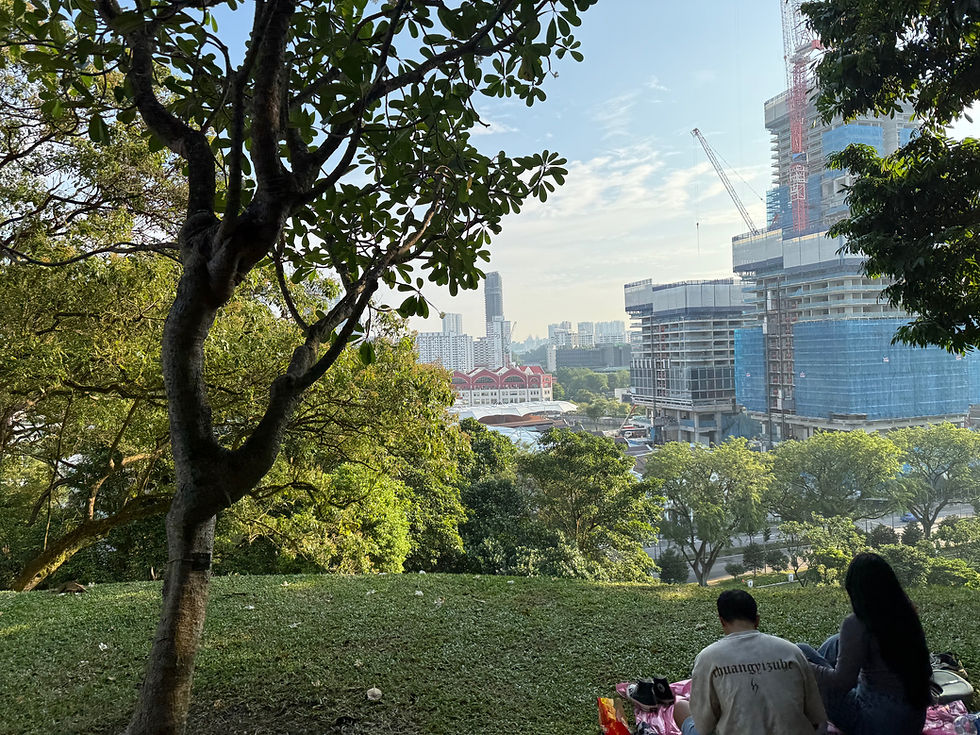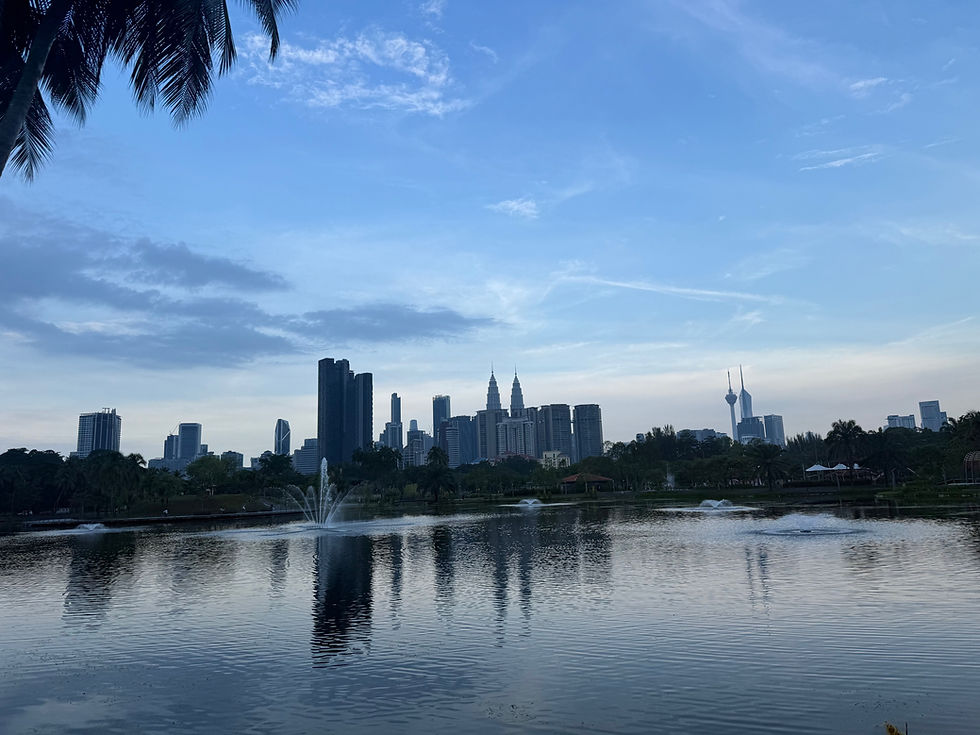Critics Are Wrong, The Singapore Summit Did Have A Winner, He Just Wasn’t There
- Nikola Ranick
- Jun 20, 2018
- 5 min read
Updated: Jul 8, 2020
Before I contribute to the political fireworks that are the most recent Trump-Kim meeting, let me remind my fellow analysts this is a summit that should be viewed through an international and not a domestic lens. Unfortunately, a great many people have tried to throw their own personal political spin on the results, but this shouldn’t be surprising in a hyper politicized time such as this. So, in my (best-attempted) nonpartisan outlook, here are some points:
- Trump had an official meeting with the leader of North Korea and that’s a big deal
o As The Economist writes, talking of any sort is better than not talking. This was a hard feat, something which prior administrations failed to do. And regardless of what actually happens, the fact that peace and reconciliation were as discussed as they were shows a semblance of progress which was absent last couple years (or really even the last couple months). It seemed Trump’s claims of ‘Fire and Fury’ were substantial enough to get Kim to the negotiating table, even if just for a bit. And all of this talk could make Kim seem more a part of the international community, not such a bad thing for a leader and a country which simply wants to be noticed/recognized. Ultimately, Donald Trump is a democratically elected leader, and Kim Jong-un is one of the most authoritarian despots in the world, but their own personal styles seem to be able to create a substantial connection.
- Labeling this as the Right’s Iran Deal is actually pretty fair
o Most independent foreign policy experts were united in recognizing the many fallacies of Obama’s attempt to stop Iran’s Nuclear Program. Despite domestic pushes and political turnarounds, that deal was always very much controversial and far from perfect. The North Korean-US one has the potential to be just as sub-par. For starters, what was promised was both vague and confusing. What does it mean to completely denuclearize? Will both sides agree on that definition and follow through? For the latter question, the answers are probably no. The US would almost never pull troops out of South Korea especially with a rising China (although Trump’s pausing of military exercises with South Korea and Japan was pretty striking). And North Korea has broken every other major deal in the past, whether openly or secretly (but not before getting a bunch of aid). Ultimately, as this summit stands in its implications, it is a solid eh.
- But things could change!
o Depending on going forward, that is what will likely define the narrative as either a success or failure for Trump and/or Kim. If Trump pushes Kim more and actually gets results, that is a massive accomplishment. But if he pushes further only to be yet another President manipulated into giving pointless aid to the North Koreans, it would be pretty pathetic.
Yet there is a clear winner right now, relaxing after an incredibly triumphant by-election in parliament and localities (14/17 mayoral seats is a big feat in South Korea). Moon Jae-In is certainly not as public in the Trump-Kim media narrative, but he is just as pivotal. The liberal Moon won the special election to replace now-jailed former President Park Geun-Hye. As much as the unveiled corruption and its implications to Park (as well as to now numerous other politicians) disheartened South Koreans, Moon seems to have restored that trust. He is incredibly popular, as evinced by his recent victories (and an 80% approval rating!), and has very much been able to seize the political vacuum as the Korean Right reels. Such was clear in seizing the initiative to talk to Kim, something that would have been much harder with the Saenuri/Liberty Korea pushing back at Moon with their own ‘fire and fury.’ He may have toned down some of his hardline left rhetoric, but Moon Jae-In continues to perform well-needed changes. He has stood out from the wave of corruption that has frankly always been rooted in Korean politics, raised the minimum wage, curbed the influence of many chaebols responsible for said corruption, and again pushed an international dialogue with the country’s biggest threat. It was his overtures, such as the famed DMZ meeting, which really propelled forward the US-NK talks. Even when the US itself was skeptical, Moon took the matters into his own hands and assured the Americans this was a route worth taking (indeed, VP Mike Pence saw himself in another 180, going from disapproving at the Olympics to watching his superior gladly met the leader of such an illiberal regime in Singapore).
Whatever the media verdict is for Trump or Kim, it is clear Moon has benefitted, and is taking his newfound authority in stride. As of now, he could be the most consequential leaders since democracy was established. He also is pioneering a resurgence of the Korean Left (one always limited via baggage of Korean Communist sympathies). And all Koreans are taking note of this new domestic and foreign policy. Indeed, even the powerful Chaebol conglomerates have started whispering about business in a more open North Korea. The fact that this is even a thought proves how much Moon has done already.
P.S-Was there also a female winner of this summit? At precisely the same time as the Singapore meeting, a new unofficial Taiwanese Embassy opened with a 99-year lease and a presence by John Bolton. For Tsai Ing-wen, the Prime Minister of Taiwan, this brings more good news. Ing-wen has been in power since 2016, representing the 2nd non-KMT President (The KMT being the capitalists who fled China). She is also the first to oversee an opposition-controlled parliament (it is her own DPP, the first to bat a majority away from the aforementioned Kuomintang). But the economy has struggled as have deteriorating international relations. As the world continues to officially abandon it (only 18 countries still recognize Taiwan), this island still has support from the strongest country in the world. Granted, Trump’s support for Taiwan is questionable at best, but the political importance of this cannot be underestimated (neither can China’s rage). Speaking of which, China’s aggressive nature, both towards Taiwan and on other policies such as the South China Sea, has led to a rise in unofficial relations with Taiwan and other continental powers. Countries in Southeast Asia and Japan have been engaging in more comradery of various levels in recent past, and that counts for something. Ideally for Taiwan, they will move quicker towards their side as China continually rises. Regardless of that, that US 99-year lease sure is quite a long time, meaning the Taiwanese public must be feeling a bit more comfortable…










Comments